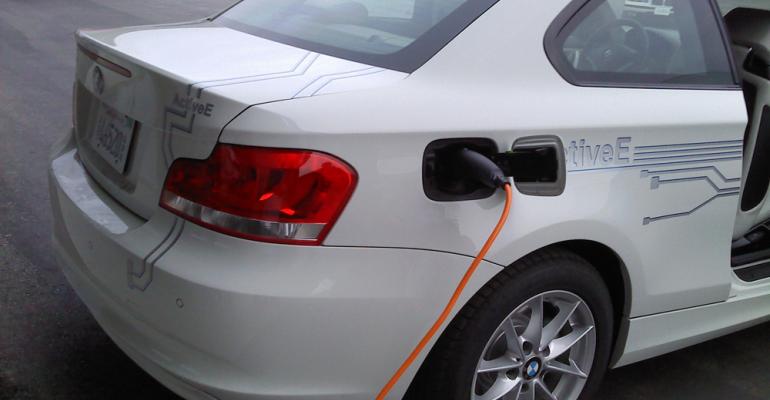With the price of gas hovering above $4 a gallon in some areas of the country, and fears it could reach $5 a gallon this summer, it appears the state of Illinois' decision to establish a network of battery recharging stations that would encourage the sale of plug-ins and all-electric vehicles is going to pay dividends.
Or is it?
The city of Chicago and Illinois Gov. Pat Quinn recently announced an ambitious EV infrastructure project that promises 280 charging stations in the city and surrounding region within a year, making Illinois second only to California in the number of recharging stations available for motorists with alternative-fuel vehicles aimed at cleaning the air and reducing dependence on foreign oil.
The stations mean EV owners can leave home and get back again without having to suffer "range anxiety," the fear of having battery power drain without an electrical socket nearby for more juice.
The commitment to make recharging stations readily available is expected to encourage auto makers to market EVs and consumer to buy them in greater numbers.
Whereas an EV can be plugged into a common 120V outlet in the garage for about a 10-hour recharge overnight, the new stations would feature 240V Level 2 rechargers than can add about 10 miles (16 km) of added range per hour to vehicles such as the Chevrolet Volt or Nissan Leaf.
The Leaf runs solely on stored electricity, but the Volt has a gasoline-powered generator that drives the car an additional 375 miles (603 km) with a full tank after the battery-powered range of about 35 miles (56 km) is exhausted.
The upcoming ’12 Ford Focus Electric is capable of adding 20 miles (32 km) of range per hour with Level 2 charging but reportedly will not be equipped with a quick-charge port.
The new stations in Illinois will be located at grocery stores, pharmacies, shopping malls and public parking garages. Midway and O'Hare airports each will have one.
But, according to the U.S. Department of Energy website, one also will be placed at Illinois Gov. Quinn's executive mansion in Springfield; another at a Unitarian Church in Chicago; one at a Chicago law firm office; one at Northwestern University in Evanston; four at University of Illinois satellite campuses in Chicago; and one at Rivers, a new gambling casino that opened about eight months ago in Des Plaines, IL.
So while EV owners will be able to recharge while shopping or flying, they also can recharge while praying, studying and shooting craps.
It is illegal to resell electricity in Illinois, so the stations either charge by the hour for parking or allow motorists to plug in for free, which is the policy at Rivers Casino, where an attendant says anyone who pulls in to valet service with an EV not only gets free parking but a free recharge as well.
However, gamblers are not betting on the new service. "We've been open about eight months and no one has used it yet," the attendant says.
Britta Gross, director-electric vehicle infrastructure for General Motors, says recharging stations do the most good where people spend the most time – at home and work.
All houses have 120V electrical service for plugging in, but places where people live in large numbers, such as apartments, condominiums, townhouses and high rises, need such service, too.
"It would be nice to have a recharging station so you could go to a restaurant on a Saturday evening and recharge your car while you eat,” Gross says.
“But the first priority now isn't (so much) recharging stations around town as it is having a place to recharge at your condo, townhouse, apartment and work, because that's going to bring more interest in electrics and lead to more sales," she says.
Those who live in apartments or condos could arrange with the owner or association to charge a monthly fee for the recharging service, while businesses could offer recharging units at work for their employees for a small weekly or monthly fee.
"Our concern isn't worrying about the money to be made from fees, but rather that charging stations be located where needed most and where they'll serve the most people,” Gross says.
“Whether the recharging service provider makes $1 or $2 or $3 an hour isn't as important as that they install recharging machines to encourage the sale of plug-ins and electrics."




